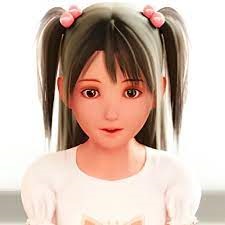A deep dive into the SaGa series often begins with its legacy titles across past console generations. For me, Romancing SaGa 2 on iOS served as my introduction almost a decade ago, a journey initially marked by struggles due to my misapplication of typical JRPG strategies. Today, however, I'm a devoted SaGa fan (as evidenced by the image below), and the recent announcement of Romancing SaGa 2: Revenge of the Seven, a complete remake for Switch, PC, and PlayStation, was a welcome surprise.

This dual-review features my experience with an early access demo of Romancing SaGa 2: Revenge of the Seven on Steam Deck, alongside an interview with Game Producer Shinichi Tatsuke (the mind behind Trials of Mana's remake). Our conversation covered various aspects, including the game's development, lessons learned from Trials of Mana, accessibility features, potential future ports to Xbox and mobile platforms, and even coffee preferences. The interview, conducted via video call, has been transcribed and lightly edited for clarity.
TouchArcade (TA): What's it like remaking beloved titles like Trials of Mana and now Romancing SaGa 2: Revenge of the Seven?
Shinichi Tatsuke (ST): Both Trials of Mana and the Romancing SaGa series predate the Square Enix merger, originating from the Squaresoft era. They're legendary Square titles, and it's an honor to helm their remakes. Nearly 30 years have passed since their original releases, offering ample opportunity for improvement. The process was incredibly enjoyable.
Romancing SaGa 2, with its unique systems, remains distinctive even today. Its inherent uniqueness made it a compelling candidate for a remake, ensuring its appeal to modern gamers.

TA: The original Romancing SaGa 2 was notoriously challenging. I recall a game over within the first ten minutes of my first playthrough! The remake offers multiple difficulty settings. How did you balance faithfulness to the original with improved accessibility, particularly for players encountering the SaGa series for the first time with its modernized visuals?
ST: The SaGa series' difficulty is well-known, attracting a dedicated fanbase globally. Many believe the difficulty is integral to the series' identity. However, others perceive a high barrier to entry due to this challenge. Many are aware of SaGa but haven't played it due to perceived difficulty.
To cater to both veteran and new players, we introduced adjustable difficulty settings. "Normal" mode targets standard RPG players, while "Casual" mode prioritizes narrative enjoyment. Our development team included core SaGa fans, ensuring a balance that respects both player groups. Think of it like adding honey to spicy curry—the original game's difficulty is akin to intensely spicy curry, and the casual mode acts as the sweetening agent.

TA: How did you balance preserving the original experience for veterans while incorporating quality-of-life improvements? How did you select modernization features while maintaining the challenge for long-time fans?
ST: The SaGa series isn't solely about difficulty; it's also about the accessibility of information. The original game obscured crucial data, such as enemy weaknesses and defense stats, forcing players to deduce them independently. We considered this unfair, so we made weaknesses visible in the remake for a fairer, more enjoyable experience. We adjusted other overly difficult aspects to create a balanced experience for modern players.

TA: Romancing SaGa 2: Revenge of the Seven runs exceptionally well on my Steam Deck. Considering my experience with Trials of Mana on various platforms, including mobile, I'm curious about Steam Deck optimization.
Editor’s Note: This question preceded the game's official Steam Deck compatibility rating.
ST: The full game will indeed be compatible and playable on the Steam Deck, as you've experienced in the demo.
TA: Can you comment on the development time for Romancing SaGa 2: Revenge of the Seven?
ST: I can't provide specific details, but the main development phase began toward the end of 2021.

TA: What lessons from the Trials of Mana remake informed the development of Romancing SaGa 2: Revenge of the Seven?
ST: Trials of Mana taught us valuable insights into player preferences for remakes. For example, regarding soundtracks, we learned players generally prefer arrangements faithful to the originals, while leveraging modern technology to enhance audio quality. We also incorporated the option to switch between original and rearranged soundtracks, a feature well-received in Trials of Mana.
We also made adjustments specific to Romancing SaGa 2. The character designs are taller and more serious than in Trials of Mana, and we used lighting effects instead of texture shadows to maintain a realistic aesthetic. While we applied lessons from Trials of Mana, we also incorporated many new approaches.

At this point, I expressed appreciation for the "Romancing SaGa 2 Primer" video, which introduced the game in English.
TA: Trials of Mana eventually reached mobile. Are there plans to bring Romancing SaGa 2: Revenge of the Seven to mobile or Xbox?
ST: Currently, there are no plans for releases on those platforms.
TA: Finally, what's your coffee preference?
ST: I don't drink coffee; I dislike bitter beverages. I also don't drink beer.
I thanked Shinichi Tatsuke, Jordan Aslett, Sara Green, and Rachel Mascetti for their time and assistance.

Romancing SaGa 2: Revenge of the Seven Steam Deck Impressions
Receiving a Steam key for the pre-release demo filled me with both excitement and apprehension. The reveal trailer looked stunning, but I was unsure about the Steam Deck experience. Fortunately, Romancing SaGa 2: Revenge of the Seven not only performs excellently on the Steam Deck OLED but also made me reconsider playing it on PS5 or Switch. The quality is exceptional.
The game looks and sounds fantastic on the Steam Deck. The remake gradually introduces battle mechanics, stats, and other elements. Returning players will appreciate quality-of-life improvements, refined combat flow, and new audio options. Newcomers will find it a welcoming entry point into the SaGa series. The visuals enhance accessibility, while retaining the core Romancing SaGa 2 experience with enhanced features. Even on the most challenging difficulty, it remains a demanding but rewarding experience.

The remake's visuals exceeded expectations. While I enjoyed Trials of Mana's remake, I believe Romancing SaGa 2: Revenge of the Seven may ultimately be the superior remake, possibly due to my personal preference for the original game. The PC port's performance on the Steam Deck is particularly impressive. The game offers extensive customization options for visuals and audio, including selectable soundtracks (original or remastered), audio languages (English or Japanese), and various graphical settings.
The PC port allows adjustments to screen mode, resolution (up to 720p on Steam Deck), frame rate (30 to unlimited), v-sync, dynamic resolution, graphics presets, anti-aliasing, texture filtering, shadow quality, and 3D model rendering resolution. Even with high settings (except for medium shadows), I achieved a near-locked 90fps at 720p on my Steam Deck OLED.
For my initial playthrough, I chose English audio. The voice acting is good, but I plan to try the Japanese audio later. The effort invested in modernizing Romancing SaGa 2: Revenge of the Seven while preserving its unique identity is evident.

I eagerly anticipate the full release and exploring the demo on other platforms. Romancing SaGa 2: Revenge of the Seven is a must-have for RPG fans. Hopefully, this will encourage players to explore other SaGa titles. Square Enix, please give us SaGa Frontier 2 next!
Romancing SaGa 2: Revenge of the Seven launches on October 24th for Steam, Nintendo Switch, PS5, and PS4 worldwide. A free demo is available on all platforms.
You can find our previous interviews, including those with Sukeban Games, FuturLab, Capcom's Shuhei Matsumoto (on Marvel vs. Capcom), Santa Ragione, Peter 'Durante' Thoman, M2, Digital Extremes (on Warframe mobile), Team NINJA, and more. Thank you for reading.








